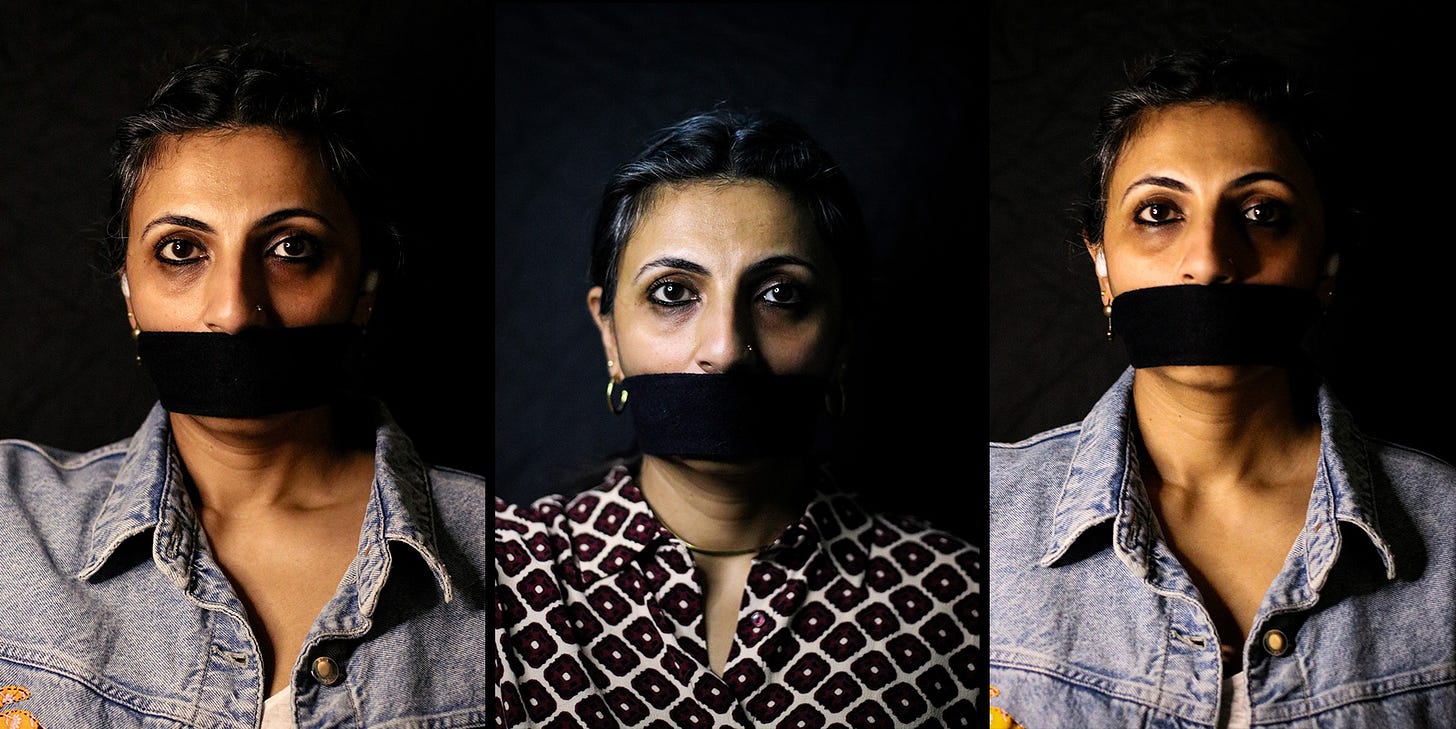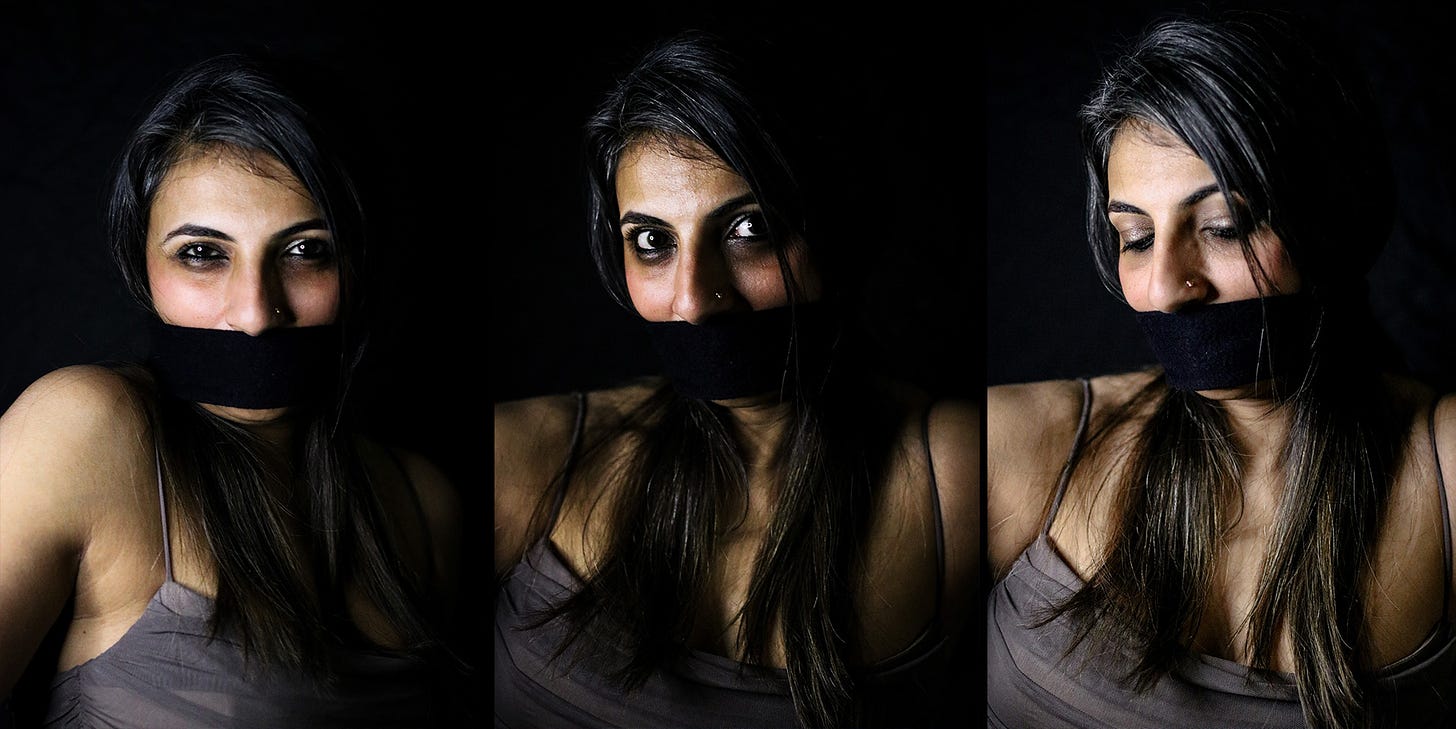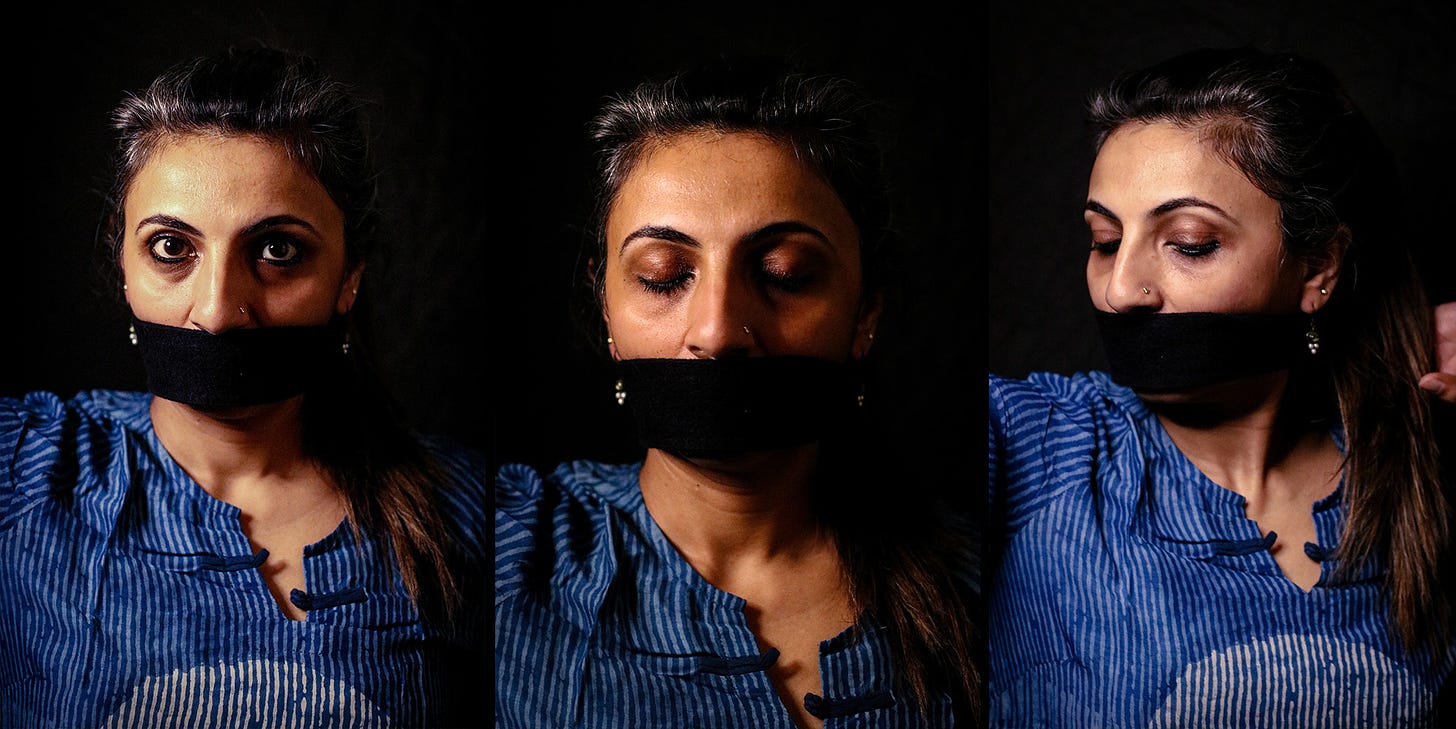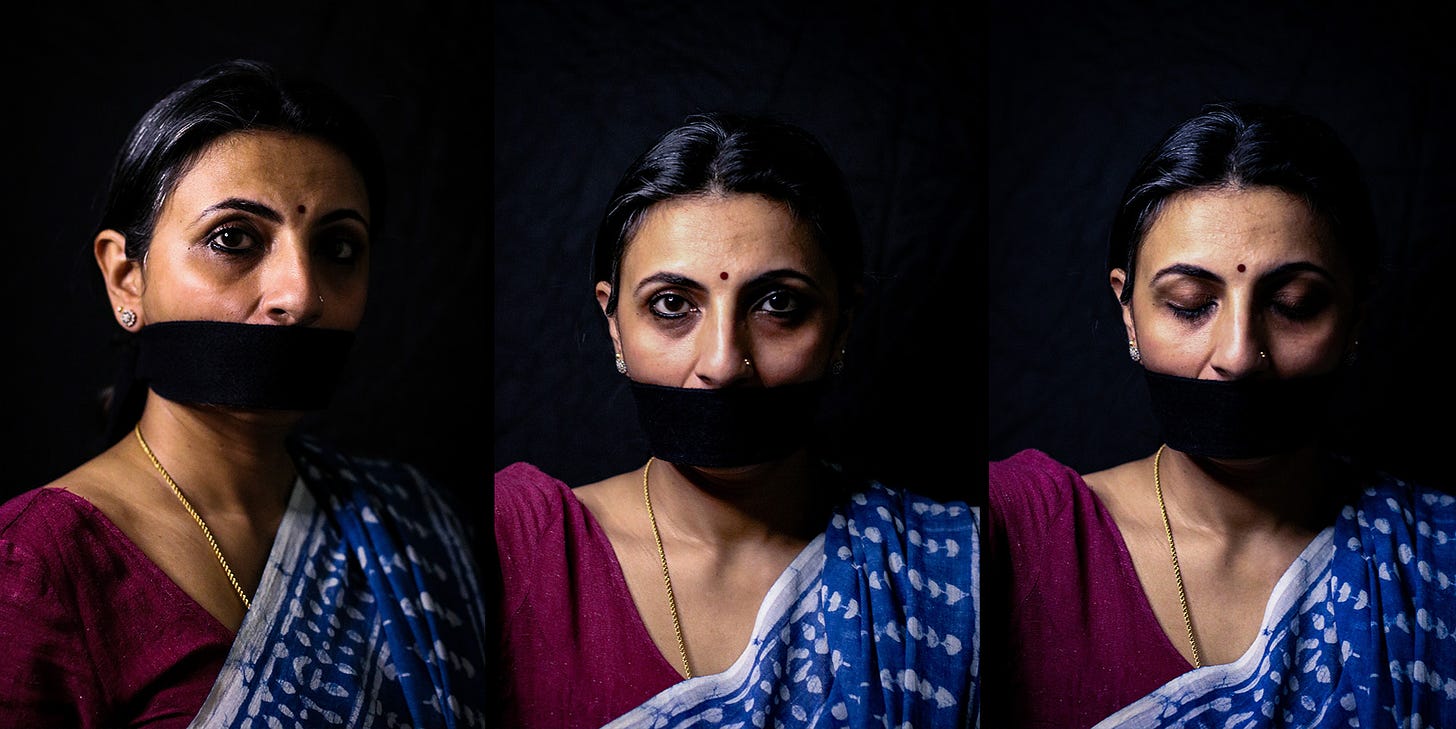The first time someone asked me for my opinion, I was twenty-two years old, in art school, and at an utter loss for words. I had no opinion. I was waiting to be told what to do. My faculty member looked at me sceptically. “You are here to think for yourself. Not to ask us for answers.”
But how do you know your opinion when you have been taught to follow your whole life?
My traditional all-girls schooling had taught me how to sit, stand, smile, behave, show respect and achieve academically. I could knit a set of booties, embroider neatly and run fast enough to qualify for a 100-meter race. The women’s college I attended allowed opinions only if they did not contradict their ideology. I made no headway there, either.
By the time I went to art school, I had been well-trained.
I was not taught to have an opinion. Girls from good families are seen, not heard. Polite girls don’t argue. Well-behaved women talk softly. I had internalised these words and used them as a bible to guide my social behaviour. So, when I was asked to think for myself, I wondered why.
It has taken me twenty years to allow my opinions to surface. To not let the silence take over. To remove the self-imposed gag. To fight the urge to remain quiet.
And yet, amidst heated debates and fights, when my heart wants to speak out, I find myself searching for that gag – searching for a way to remove myself from the fight. I do not know how to have a healthy argument. I do not know when to stop when I get angry.
The gag is a crutch, a drug administered too early. And I am addicted to it.
Naqab (Mask) is a photographic exploration through a series of portraits of the many masks I wear as an Indian woman. It is my attempt to unravel, uncover, and discover my deep-seated conditioning, biases, strengths and weaknesses, one portrait at a time.
The project will span a year, with one portrait every week.
If you are enjoying this project, please consider sharing or recommending my publication. It would immensely help a new writer like me reach a wider audience.








Writing toh writing, your video is so damn powerful too, Samira! This series should have its display at a performing center - I'm sure it will someday soon, I just hope I'm there in the audience!
The polite girl-soft spoken woman is so normalised and takes years of unlearning. Love how you’re speaking to it, Samira. So powerful- both the written word and the photographs.